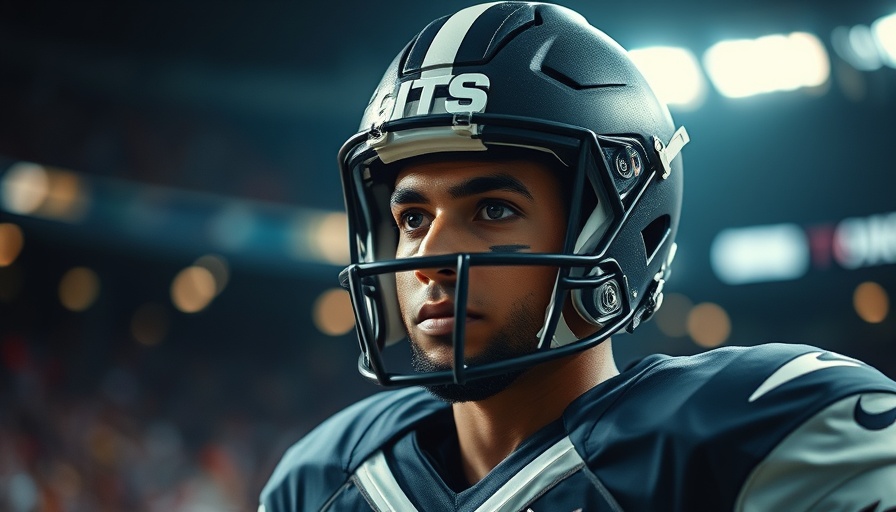
The Weighty Challenge for Rookies in the NFL
The NFL is often viewed as a haven for athleticism, skill, and with few exceptions, a fit physique. Yet, the case of Desmond Watson, a 450-pound rookie now on the non-football injury list, brings a different perspective to the conversation about player readiness in professional sports. Watson’s situation serves as a reminder of the physical demands placed on players and what it means for both player welfare and team strategy.
Breaking Down the Weight Dilemma
Watson’s impressive size caused a mix of excitement and concern among fans and analysts alike. While being large can be an advantage in positions like defensive tackle, when a player tips the scales at a staggering 464 pounds, it does raise red flags about stamina, health, and usability on the field. The Buccaneers' decision to place Watson on the non-football injury list underscores a pressing reality: players need to meet not only the physical expectations of the league but also personal health standards.
Why Weight Matters in Football
The physical nature of American football requires an intricate balance of mass, speed, and agility. For positions requiring considerable physical engagement, like offensive line or defensive tackle, weight can sometimes translate into a strength advantage. However, if excess weight diminishes mobility and endurance, it can become a liability rather than an asset. Players like Watson need to navigate these complexities while receiving support and guidance to achieve their peak performance levels.
Future Prospects: Will Watson Bounce Back?
The immediate future for Watson seems uncertain. As expectations shift, so do the prospects of shaping his career. Will he rise to the occasion, slim down, and contribute meaningfully to the team? Or will his journey with the NFL serve as a cautionary tale, highlighting the increasingly scrutinized relationship between body size and athleticism? The journey ahead could provide insights into not just his capabilities, but also how the league perceives body image and health.
Counterarguments: The Case for Diverse Body Types
Some analysts argue that the NFL’s hyper-focus on player weight could lead to missed opportunities. Players come in all shapes and sizes, and it is this diversity that can lead teams to unique playing strategies. The recent NFL draft showcased talent pools exploding with well-rounded athletes, prompting a more nuanced understanding of what constitutes as 'fit' for professional play. It raises an essential question: are we missing out on potential stars by strictly adhering to conventional weight benchmarks?
Building a Support System for Aspiring Players
What does the NFL need to do to ensure rookies like Watson find success? Support systems, including nutritionists, trainers, and personalized coaching, can bridge the gap for struggling players. This additional layer of support could ensure that the next generation of athletes has a clear path to success, irrespective of their initial weigh-in. Setbacks such as Watson's only underscore the need for more comprehensive support frameworks rather than swift decisions that may label a player for life.
Ultimately, each athlete must balance their physical attributes with the demands of their chosen sport while being granted the opportunity to thrive. This case isn't just about a rookie getting placed on a list—it's a reflection on how we understand fitness, health, and what it means to be part of America’s favorite sport.
Call to action: As fans, we must engage with the conversation surrounding athleticism and health in sports. Support your favorite teams, but also advocate for initiatives that promote player well-being beyond just performance on the field. Dive deeper into the issues—to understand the human stories behind the athletes we watch.
 Add Row
Add Row  Add
Add 




Write A Comment